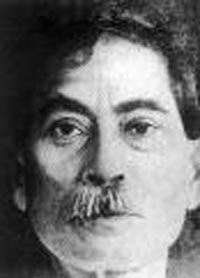
Premchand was born on July 31, 1880 in a village called ‘Lamahi’, about four miles from the city of Benares, to an ordinary working family. HIs father, Munshi Azaayab Lal, was a village postmaster. Premchand lost his mother in his seventh year. His father married again. His elder sister was, to an extent, able to fill the gap left by his mother.
Munshiji was subject to transfers frequently. Premchand also had to travel to many towns along with him. They could not settle down anywhere. Premchand became acquainted with a bookseller called Buddhi Lal. He used to sit in his shop and read books. Premchand was quite facile in Hindi, Urdu, Parsi, and English.
He was forced to take on the family responsibilities in his 16th year. He gave up his studies and got a government job as a village school teacher. While working, he studied privately and passed his Intermediate and B.A. examinations.
Premchand’s real name was Nawab Rai or Dhanpat Rai. His book Soje Vatan was banned by the then British government, which burned all of the copies. Therefore, from 1910 he continued to write under the pen name of Premchand.
Premchand married to Shivarani Devi. In 1921 he answered Gandhiji’s call and resigned from his job. He worked to generate patriotism and nationalistic sentiments in the general populace. When the editor of the journal Maryaada was jailed in the freedom movement, Premchand worked for a time as the editor of that journal. Afterward, he worked as the principal in a school in the Kashi Vidyapeeth.
In the course of his work, he travelled through many small villages and towns, where he studied the people’s lives and wrote stories, novels, and essays. All the characters in his writings are true-to-life ordinary people. If anyone asked him why he doesn’t write anything about himself, this was his answer, “What greatness do I have that I have to tell anyone about? I live just like millions of people in this country; I am ordinary. My life is also ordinary. I am a poor school teacher suffering family travails. During my whole lifetime, I have been grinding away with the hope that I could become free of my sufferings. But I have not been able to free myself from suffering. What is so special about this life that needs to be told to anybody?”
Premchand’s writings have been translated not only into all Indian languages, but also Russian, Chinese, and many other foreign languages. He spent his life as an ordinary school teacher, freedom fighter, social reformer, editor, and author of many great works. He left this world on October 8, 1936.

